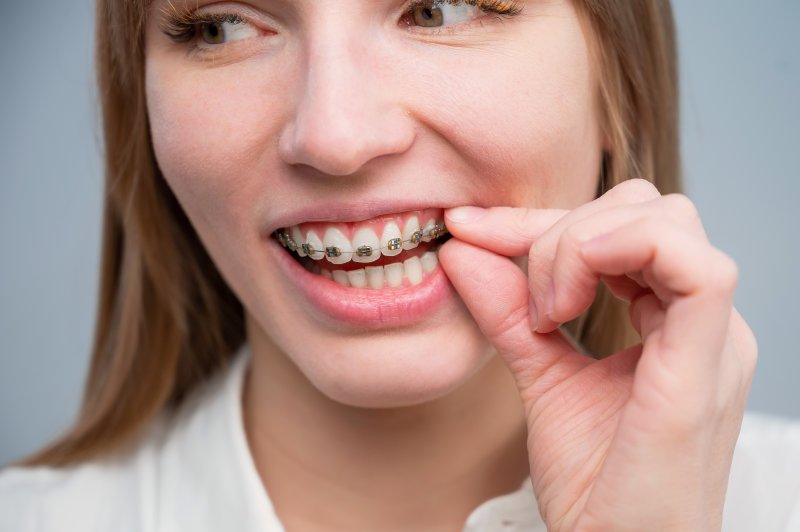
Wearing braces has its advantages, one of which is achieving a straighter smile. But every aspect of treatment isn’t always enjoyable; in fact, the oral sores that can form can often be uncomfortable. But what can you do to prevent as well as treat them along the way? Keep reading to discover some helpful tips that will make your orthodontic journey less problematic.
What Causes Oral Sores and Ulcers to Form?
The most common reason oral sores and ulcers form while wearing braces is because of the protruding metal brackets that rub against your cheeks and other soft oral tissues.
Since these appliances are bonded to the surfaces of your teeth, they cannot be removed. Over time, the fresh skin inside your mouth can become irritated by these small pieces of metal, leading to the formation of uncomfortable sores.
What Can You Do to Prevent Oral Sores?
If you want to get a jumpstart on avoiding this type of discomfort, there are a few things you can do to minimize your risk of developing oral sores and ulcers, such as:
- Using orthodontic wax to cover your brackets and create a more comfortable barrier between the metal and your oral tissues.
- Drinking lots of water to keep your mouth moist. When dry, the chances of oral sores increase, so staying hydrated is essential.
- Purchasing silicone covers to place over your brackets. Just be sure the metal is dry before trying to put these in place.
- Practice regular brushing and flossing to take proper care of your braces. When not maintained, these appliances can become loose or break, making it more likely for oral sores to form.
What Can You Do to Manage Oral Sores Once They Form?
While using these methods to prevent oral sores, you may find that one still develops along the way. If this happens, you’ll need to make sure that you adopt one or more of these solutions to help manage the discomfort:
- Take an over-the-counter pain reliever to help with swelling and soreness. Whether it’s topical or comes in pill form, these can make living with an oral sore more manageable.
- Use a mixture of one teaspoon of salt and one cup of warm water to perform a rinse. Hold the solution in your mouth for 30 seconds and swish it around before spitting it out. This will kill off bad bacteria and thoroughly cleanse the sore to prevent infection.
- Place a wet tea bag on the oral sore or ulcer. The anti-inflammatory properties can help minimize pain and swelling.
- Reduce your stress. It’s not uncommon for sores and ulcers to more easily form when faced with added stress, so find ways to relax (i.e., yoga, meditation, exercise, etc.).
Stay focused on the results you can expect to achieve once you are finished with orthodontic treatment. In the meantime, continue taking proper care of your smile and incorporating preventive measures to keep your mouth healthy and free of oral sores.
About the Author
Dr. Aaron DeMaio is a trusted orthodontist who completed his dental degree at the University of Connecticut School of Dental Medicine before going on to pursue orthodontic training at the Tufts-New England Medical Center in Boston. As a valued professional at Treehouse Orthodontics, he can ensure the success of each case by building effective treatment plans and providing helpful tips to make wearing braces a breeze. If you or your child are struggling with oral sores, visit our website or call one of our offices to speak to a member of our team.
